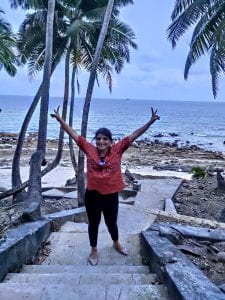With the switch to virtual learning, Eden Hall’s K-12 office has been offering Sustainable Career Webinars since April. These events are meant to help young people better understand the variety of careers in the field. They also are meant to help students better identify the connections between social, economic, and environmental sustainability. Offered at a 6th grade vocabulary level, and open to any grade, we’ve been excited to see 3rd-12th graders and educators from a wide variety of schools on the calls so far. Our speakers have worked in various sectors, including: renewable energy, green buildings, air/water quality, conservation, community development, affordable housing, climate change, environmental education and more. All of which work towards achieving the United Nation’s Sustainable Development Goals. Did you or your students miss some of our webinars this spring? You can check out all past career webinar recordings on our resources page, including links to related reading and tips for taking action from the speakers themselves.
This fall, we are excited to announce that the webinar series will continue with a monthly theme. These themes will highlight the connections between sustainability topics and social justice. In the same month, you will hear from climate scientists while also hearing from organizations that work with refugees and immigrants. Why? Because climate change is causing people to have to leave their homes and migrate all over the globe! What happens when that movement is met with xenophobia? Each month will be intersectional in nature, but will start with the history and current nature of a particular form of social identity-based oppression.
Without further ado, here are the themes for next year:
- September – Climate Change and Ethnicity-Based Oppression
- October – Food Systems and Racial Oppression
- November/December – Clean Air and Water and Gender/Sexuality Oppression
- January – Energy and Class Oppression
- February – Community Development, Ability and Ageism
- March – Ecology and Religious Oppression
Have an idea for a speaker you admire locally or nationally that work in any of these areas that you want to learn more from? Let us know! We can’t wait to have this conversation with a local and national pool of students, educators and speakers. We are currently busy scheduling virtual careers webinars for the whole school year, and are aiming for at least one per week. Keep a look out for our Career Webinar Schedule and do not forget to register in advance, please! In the meantime, we can’t wait for our next sustainable career webinar event this summer with the Global Sustainability Lead for Facebook on June 24th.
Post written by Rashmi Salamani and Kelly Henderson
About the author:
Hello Everyone! I am Rashmi Salamani and I am the newest member of the Eden Hall Campus K-12 Programs team. I have come all the way from India to dive deeper into the world of sustainability and help humans become a more responsible species for this planet.
A civil engineer by profession, my work experience with construction companies back in India is where I first began observing the hostile attitude of the sector towards environmental issues. I was surprised by this since it seemed to me that they are well-known facts that the built environment accounts for 40% of global energy use, 30% of Greenhouse Gas (GHG) emissions, high waste generation and the highest consumption of natural resources compared to other industries like agriculture and manufacturing. It is ironic that the construction sector with its Environmental Health and Safety policies is almost always inclined towards human health and safety and environmental health is conveniently ignored. This motivated me to delve deeper into concepts of sustainability in the built environment, leading me to Chatham’s Falk School.
With its aspirations for a self-sustaining and energy efficient campus, including solar and geothermal energy, an onsite wastewater treatment plant, and many other sustainable design features, the Falk School lives by “practice what you preach” motto and enables its students to think about and experience sustainability in many ways. I aim to learn and be able to execute projects that strengthen the relationship between people and the environment and inspire people to live in harmony with nature.
From facilitating field trips to now leading our office’s efforts with the sustainable career webinars, I am ecstatic to be working with the Eden Hall K-12 Program. It is my first time working with school-aged students, and I consider it a once-in-a-lifetime opportunity. I have particularly been fascinated by the work because it allows me to explore simple ways to help youth understand a complex topic like sustainability.
